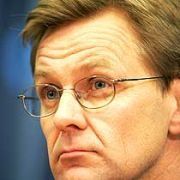Ex-UN aid official says Darfur force must fight
September 28, 2007 (OSLO) — United Nations and African Union peacekeepers going to Sudan’s Darfur region must be ready to fight to protect civilians from armed militias, former U.N. relief coordinator Jan Egeland said on Friday.
 A 26,000-strong hybrid U.N. and AU force is due to deploy shortly to the troubled region of western Sudan, where experts say about 200,000 people have been killed in recent years since mainly non-Arab rebels took up arms against the government.
A 26,000-strong hybrid U.N. and AU force is due to deploy shortly to the troubled region of western Sudan, where experts say about 200,000 people have been killed in recent years since mainly non-Arab rebels took up arms against the government.
The world’s largest humanitarian operation has been providing food and shelter, but a much smaller AU force has been unable to halt the slaughter.
New peace talks are planned for October but violence has become so serious that some aid groups have reduced their operations or left altogether.
“There is no peace to keep and that is why the mandate has to be to build peace locally and robustly defend civilians,” Egeland told Reuters in the Oslo headquarters of the foreign policy think tank he now heads.
“That means that, when the humanitarians or the refugees themselves say they are threatened, the force has to deploy protectively and defend. And fight, if necessary.”
The former U.N. undersecretary-general, who still advises U.N. chief Ban Ki-moon on peace building, said simply distributing aid in Darfur had saved hundreds of thousands of lives, but was not enough.
“We have let the situation disintegrate,” he said. “For me, it is the safe areas of Bosnia all over again. We give people food and blankets but then we say they can be massacred at night.”
The Sudanese government accuses the West of exaggerating the scale of the crisis, saying that 9,000 people have died. Critics accuse the government of arming and backing the Janjaweed militia, who are accused of some of the worst atrocities.
“THEY ARE COWARDS”
Egeland said he did not believe the Janjaweed militia or other armed groups would fight hard if properly challenged.
“My view is that these people are cowards,” he said. “Every time they are challenged they do not engage. I do not foresee battles. What they have done is specialise in attacks on innocent civilians. They rape women and torch villages.”
The infantry for the force will be entirely African but U.N. officials say the AU is blocking troop contributions from Western countries, such as Norwegian and Swedish combat engineers, but Egeland said he believed it would eventually be accepted.
In the short term, a proactive approach by the peacekeepers might incite retaliation against the unarmed humanitarian workers, he said, but overall it would improve security in the long run particularly for the aid operation.
“There are examples for incidents in Congo where anger at the peacekeepers was taken out on the easy target, which was the humanitarians,” he said.
“It is a risk that the security situation as it is at the moment cannot continue. In the short term, it may reduce security but in the long term it will help.”
Overall, he said U.N. peacekeeping missions in the past 10 years had produced impressive results in the Democratic Republic of Congo, Liberia, Sierra Leone and elsewhere. In contrast, unilateral U.S.-led interventions in places such as Iraq had proved deeply divisive.
(Reuters)
